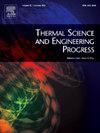零缺陷制造链中用于集成工艺-产品-系统优化的 Ai-enhanced 热建模
IF 5.1
3区 工程技术
Q2 ENERGY & FUELS
引用次数: 0
摘要
本文提出了一种新颖的方法,通过集成基于人工智能的热建模,在复杂的制造链中执行多阶段流程、产品和系统优化,从而实现零缺陷制造。它通过机器学习算法,将先进的热仿真和传感器数据实时馈送整合为一个多阶段热预测和管理系统。该框架采用卷积神经网络 (CNN)、长短期记忆 (LSTM) 网络和图神经网络 (GNN) 的组合来预测热行为,分别用于空间、时间和交互热行为的编码、预测和学习。它还进一步嵌入了有限元分析(FEA)模拟,通过卡尔曼滤波器进行数据融合,从而进行高保真热预测。这有助于从涉及不同类型传感器和信号特征的传感器测量中获得热状态的最佳估计值。多阶段多模式优化框架包括用于全局热参数优化的遗传算法(GA)、用于多阶段动态过程控制优化的强化学习(RL),以及用于嵌入数字孪生结构的协调多阶段多目标平衡的多代理系统(MAS)。评估结果表明,与当前的实际方法相比,所提出的系统在提高整体生产效率方面的效果为 33%,在减少缺陷方面的效果为 47%,在降低能源利用率方面的效果为 22%。在预防、检测和预测跨阶段流程故障方面,预测能力也提高了 38%。本文章由计算机程序翻译,如有差异,请以英文原文为准。
Ai-enhanced thermal modeling for integrated process-product-system optimization in zero-defect manufacturing chains
This paper proposes a novel approach for realising zero-defect manufacturing by integrating AI-based thermal modelling to perform multi-stage process, product, and system optimisation in complex manufacturing chains. It integrates advanced thermal simulation and sensor data feed in real-time as a multistage thermal prediction and management system via machine learning algorithms. This framework seeks to predict thermal behaviour using a combination of convolutional neural networks (CNNs), long short-term memory (LSTM) networks, and graph neural networks (GNNs) for encoding, predicting, and learning the spatial, temporal, and interactive thermal behaviour, respectively. It further embeds finite element analysis (FEA) simulations for high-fidelity thermal predictions using data fusion through Kalman filters. This helps obtain the optimal estimates of thermal states from sensor measurements involving different types of sensors and the characteristics of signals. A multistage multimodal optimization framework involves genetic algorithms (GA) for global thermal parameter optimisation, reinforcement learning (RL) for multi-stage dynamic process control optimisation, and multi-agent systems (MAS) for coordinated multi-stage multi-objective balance embedded in a digital twin architecture. Evaluation results show that the effectiveness of the proposed system in improving the overall production efficiency is 33%, reducing defects is 47%, and reducing energy utilisation is 22%, when compared to the current de facto approaches. There is also a 38% improvement in predictive capability in preventing, detecting, and predicting of cross-stage process faults.
求助全文
通过发布文献求助,成功后即可免费获取论文全文。
去求助
来源期刊

Thermal Science and Engineering Progress
Chemical Engineering-Fluid Flow and Transfer Processes
CiteScore
7.20
自引率
10.40%
发文量
327
审稿时长
41 days
期刊介绍:
Thermal Science and Engineering Progress (TSEP) publishes original, high-quality research articles that span activities ranging from fundamental scientific research and discussion of the more controversial thermodynamic theories, to developments in thermal engineering that are in many instances examples of the way scientists and engineers are addressing the challenges facing a growing population – smart cities and global warming – maximising thermodynamic efficiencies and minimising all heat losses. It is intended that these will be of current relevance and interest to industry, academia and other practitioners. It is evident that many specialised journals in thermal and, to some extent, in fluid disciplines tend to focus on topics that can be classified as fundamental in nature, or are ‘applied’ and near-market. Thermal Science and Engineering Progress will bridge the gap between these two areas, allowing authors to make an easy choice, should they or a journal editor feel that their papers are ‘out of scope’ when considering other journals. The range of topics covered by Thermal Science and Engineering Progress addresses the rapid rate of development being made in thermal transfer processes as they affect traditional fields, and important growth in the topical research areas of aerospace, thermal biological and medical systems, electronics and nano-technologies, renewable energy systems, food production (including agriculture), and the need to minimise man-made thermal impacts on climate change. Review articles on appropriate topics for TSEP are encouraged, although until TSEP is fully established, these will be limited in number. Before submitting such articles, please contact one of the Editors, or a member of the Editorial Advisory Board with an outline of your proposal and your expertise in the area of your review.
 求助内容:
求助内容: 应助结果提醒方式:
应助结果提醒方式:


